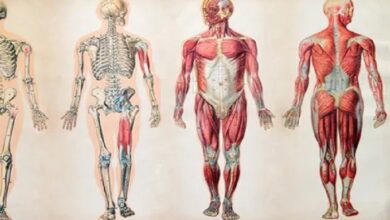Comprehensive Guide to Pet Care: Ensuring a Happy and Healthy Life for Your Furry Friends

Pet ownership brings immense joy and companionship, but it also comes with the responsibility of providing proper care. In this comprehensive guide, we will delve into the essential aspects of pet care, covering everything from nutrition and grooming to exercise and mental stimulation.
Understanding Pet Care:
Pet care encompasses various elements, all of which contribute to the overall well-being of your furry companions. Let’s explore these crucial aspects to ensure a happy and healthy life for your pets.
Nutrition:
A balanced diet is the cornerstone of good pet health. Understanding your pet’s nutritional needs, including the right proportion of proteins, fats, vitamins, and minerals, is essential. Consult with your veterinarian to create a diet plan tailored to your pet’s specific requirements.
Grooming:
Regular grooming not only keeps your pet looking and smelling fresh but also contributes to their overall health. Brushing, bathing, and nail trimming are key components of a proper grooming routine. Different breeds may have specific grooming needs, so be sure to research and address them accordingly.
Exercise:
Physical activity is vital for your pet’s health and happiness. Dogs, in particular, benefit from daily walks, playtime, and interactive games. Cats enjoy activities like chasing toys and climbing. Tailor your pet’s exercise routine to their breed, size, and individual preferences.
Veterinary Care:
Routine veterinary check-ups are crucial for preventive care. Vaccinations, parasite control, dental care, and spaying/neutering are essential aspects of maintaining your pet’s health. Regular veterinary visits help identify and address potential issues before they become serious.
Mental Stimulation:
Pets, like humans, need mental stimulation to prevent boredom and behavioral problems. Provide toys, puzzles, and interactive games to keep their minds engaged. Spend quality time with your pet, offering companionship and strengthening the bond between you.
Socialization:
Whether you have a dog, cat, or another type of pet, socialization is key to their well-being. Exposure to different people, animals, and environments from a young age helps your pet become well-adjusted and less prone to anxiety or aggression.
Conclusion:
pet care is a multifaceted commitment that involves attention to nutrition, grooming, exercise, veterinary care, mental stimulation, and socialization. By providing comprehensive care, you ensure a happy and fulfilling life for your beloved pets.
FAQs:
Q1: How often should I groom my pet?
A1: The frequency of grooming depends on your pet’s breed, coat type, and individual needs. Generally, dogs may require grooming every 4-8 weeks, while cats may need less frequent grooming.
Q2: What is the best diet for my pet?
A2: The best diet varies based on your pet’s age, breed, size, and health condition. Consult with your veterinarian to determine the most suitable diet, which may include commercial pet food or a balanced homemade diet.
Q3: Why is exercise important for pets?
A3: Exercise is essential for maintaining your pet’s physical and mental health. It helps prevent obesity, promotes cardiovascular health, and provides an outlet for excess energy. Additionally, regular exercise contributes to behavioral well-being.
Q4: How can I socialize my pet?
A4: Start socializing your pet from a young age by exposing them to various people, animals, and environments. Gradually increase the complexity of social situations, rewarding positive behavior and providing reassurance when needed.
Q5: How often should I schedule veterinary check-ups?
A5: Regular veterinary check-ups should occur at least once a year for healthy pets. Older pets or those with specific health concerns may need more frequent visits. Follow your veterinarian’s recommendations for a tailored care plan.






